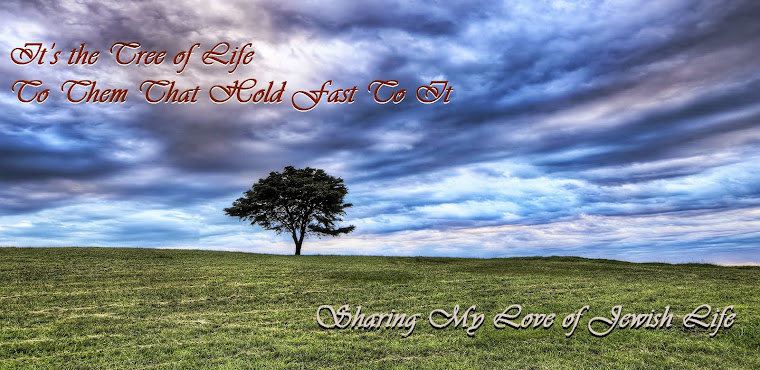Dedicated to a refuah shelaima for Sofiya Sara bas Merah and for a continued refuah for Leah Nechama bas Shulamit.
Listen to the news in many Western countries and you might hear contradictory reports about there being too many people on the planet or direly low rate of population growth in a particular country. Obviously, these reports are focused on very different concerns; nevertheless, they highlight our natural interest in how the world fulfills the most basic human commandment, the first commandment of the Torah, which is to be fruitful and multiply.
It is well known that peru urevu is a mitzvah that Jewish
law takes seriously, and so one must question the fact that the Jewish people
are now, and have always been, a tiny sliver of the population. Of course we can
point to the horrors of modern history as to why our population is small today,
but the fact of the matter is that we have always been an insignificant
percentage – numerically speaking. The
constant devastations that have limited our numbers are accounted for in many
of the upcoming parshios in Sefer Devarim that make clear the consequences of
our betrayal of the covenant, but perhaps we can find in this week’s parsha a
different perspective – a hope filled perspective - on our size. Perhaps,
looking at the description of the borders of the land, we might see that this was
the plan all of long.
The borders of the Promised Land, as delineated in Perek 34,
do not create an enormous territory. In the next Perek, Hashem specifies that
the Leviim were to have 48 small cities, six of which were to be cities of refuge.
The size of our land appears to be not much different than that of the State of
Israel today, which we know is smaller that most states in the United States. There
have always been kingdoms of far greater land mass. If Hashem had intended the
Jewish people to grow strong in the way that other nations have grown strong –
through physical presence and force of population - would He not have
sanctified a far greater territory as that destined for Bnei Yisrael.
One could argue that more land was not needed for the nation
that Hashem brought forth from slavery in Egypt, but the Promised Land (even with
more territory as delineated elsewhere) was never large. It wasn’t large
because it was something far greater. This small swath of land nestled against
the Mediterranean is the land Hashem promised Avraham, it is the land walked
and known by our forefathers. It was never “big,” but it was always holy.
Other than nodding our heads at the fact that we remain a
small nation, what can we gain from considering the size of the Promised Land,
the limitations this infers for the future population? Bnei Yisrael are pledged
with being an “Am Kadosh” (a holy nation), a “mamleches kohanim” (a nation of
priests), and so forth. The kohanim among the Jewish people were a small sliver
of the population, descendants of one man out of thousands. And the kohanim
were given the honor of replacing the firstborn sons of the nation, which is,
again, a small percentage of a population. To be holy means to be separate, or
to separate one’s selves, and to form a people that can truly live up to that
title, implies that there will be limits. Bnei Yisrael is not destined to
conquer the world with an army or to overpower the world with might. Bnei
Yisrael is destined to present to the world the very real possibility of living
a life dedicated to serving Hashem.
There is a frequently discussed Midrash that explains that
when the Children of Israel left Egypt, only a fifth of the people followed Moshe.
The other 80% perished in the plague of Darkness. In many ways, this Midrash is
a key to understanding the steady disproportion of the Jewish people, and also,
perhaps, modern day assimilation into Western society. Choosing to enter the
wilderness in order to serve Hashem is not easy, even for those who are born
into a fully observant lifestyle. Being an Am Kadosh requires dedication, and
that dedication limits Bnei Yisrael. Those limitations, however, are the key to
our destiny. Rather than worry over our size, our job is worry about being able
to fill the role that merits the fullness of the Promised Land.
The Jewish people have never needed a vast population to
influence the world; we have never needed to swarm over the earth and force
people to join us. The power of the Jewish people, the secret of our survival
for so many millenia, has been our choice to stay dedicated to our role. The
Land of Israel was then and will be the perfect size for us in the coming days
when the state of the world will recognize our sanctified role.
May we see the days of redemption and the coming of Moshiach
swiftly in our time.
